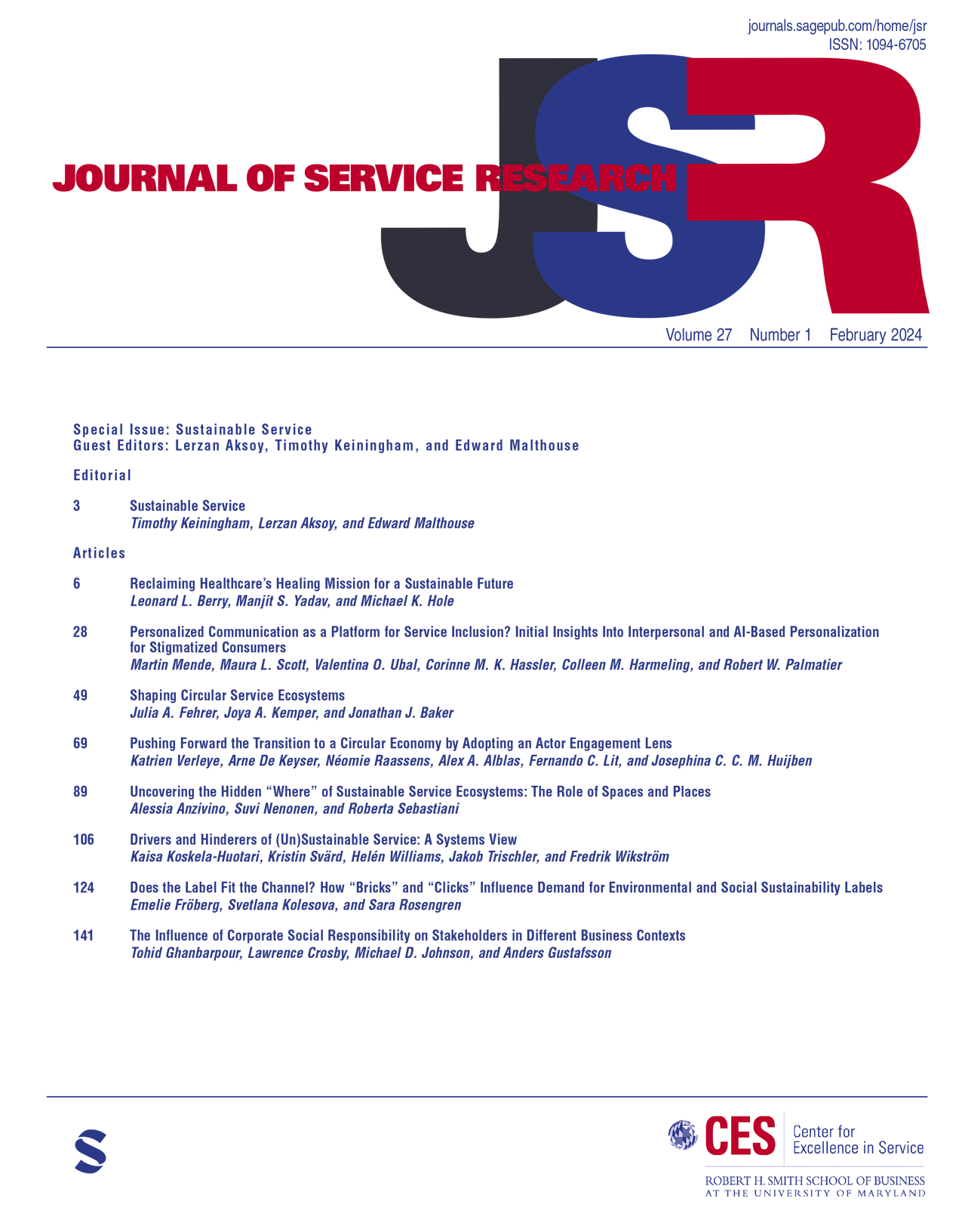Artificial Emotions and Love and Sex Doll Service Workers
IF 8.6
2区 管理学
Q1 BUSINESS
引用次数: 16
Abstract
Realistic looking humanoid love and sex dolls have been available on a somewhat secretive basis for at least three decades. But today the industry has gone mainstream with North American, European, and Asian producers using mass customization and competing on the bases of features, realism, price, and depth of product lines. As a result, realistic life size artificial companions are becoming more affordable to purchase and more feasible to patronize on a service basis. Sexual relations may be without equal when it comes to emotional intimacy. Yet, the increasingly vocal and interactive robotic versions of these dolls, feel nothing. They may nevertheless induce emotions in users that potentially surpass the pleasure of human-human sexual experiences. The most technologically advanced love and sex robots are forecast to sense human emotions and gear their performances of empathy, conversation, and sexual activity accordingly. I offer a model of how this might be done to provide a better service experience. I compare the nature of resulting “artificial emotions” by robots to natural emotions by humans. I explore the ethical issues entailed in offering love and sex robot services with artificial emotions and offer a conclusion and recommendations for service management and for further research.人工情感与爱与性玩偶服务工作者
长相逼真的人形性爱玩偶已经在某种程度上保密了至少30年。但如今,随着北美、欧洲和亚洲生产商使用大规模定制,并在功能、现实主义、价格和产品线深度等方面展开竞争,该行业已成为主流。因此,真人大小的人造伴侣正变得越来越便宜,而且在服务基础上也更容易得到光顾。当涉及到情感亲密时,性关系可能是没有平等的。然而,越来越多的声音和互动机器人版本的这些娃娃,感觉不到任何东西。然而,它们可能会引发用户的情绪,这种情绪可能会超过人类性体验的快感。据预测,技术最先进的性爱机器人能够感知人类的情感,并相应地调整它们的移情、对话和性行为表现。我提供了一个模型,说明如何做到这一点以提供更好的服务体验。我将机器人产生的“人工情感”的性质与人类的自然情感进行了比较。我探讨了提供具有人工情感的爱与性机器人服务所涉及的伦理问题,并为服务管理和进一步研究提供了结论和建议。
本文章由计算机程序翻译,如有差异,请以英文原文为准。
求助全文
约1分钟内获得全文
求助全文
来源期刊

Journal of Service Research
BUSINESS-
CiteScore
20.30
自引率
6.50%
发文量
28
期刊介绍:
The Journal of Service Research (JSR) is recognized as the foremost service research journal globally. It is an indispensable resource for staying updated on the latest advancements in service research. With its accessible and applicable approach, JSR equips readers with the essential knowledge and strategies needed to navigate an increasingly service-oriented economy. Brimming with contributions from esteemed service professionals and scholars, JSR presents a wealth of articles that offer invaluable insights from academia and industry alike.
 求助内容:
求助内容: 应助结果提醒方式:
应助结果提醒方式:


